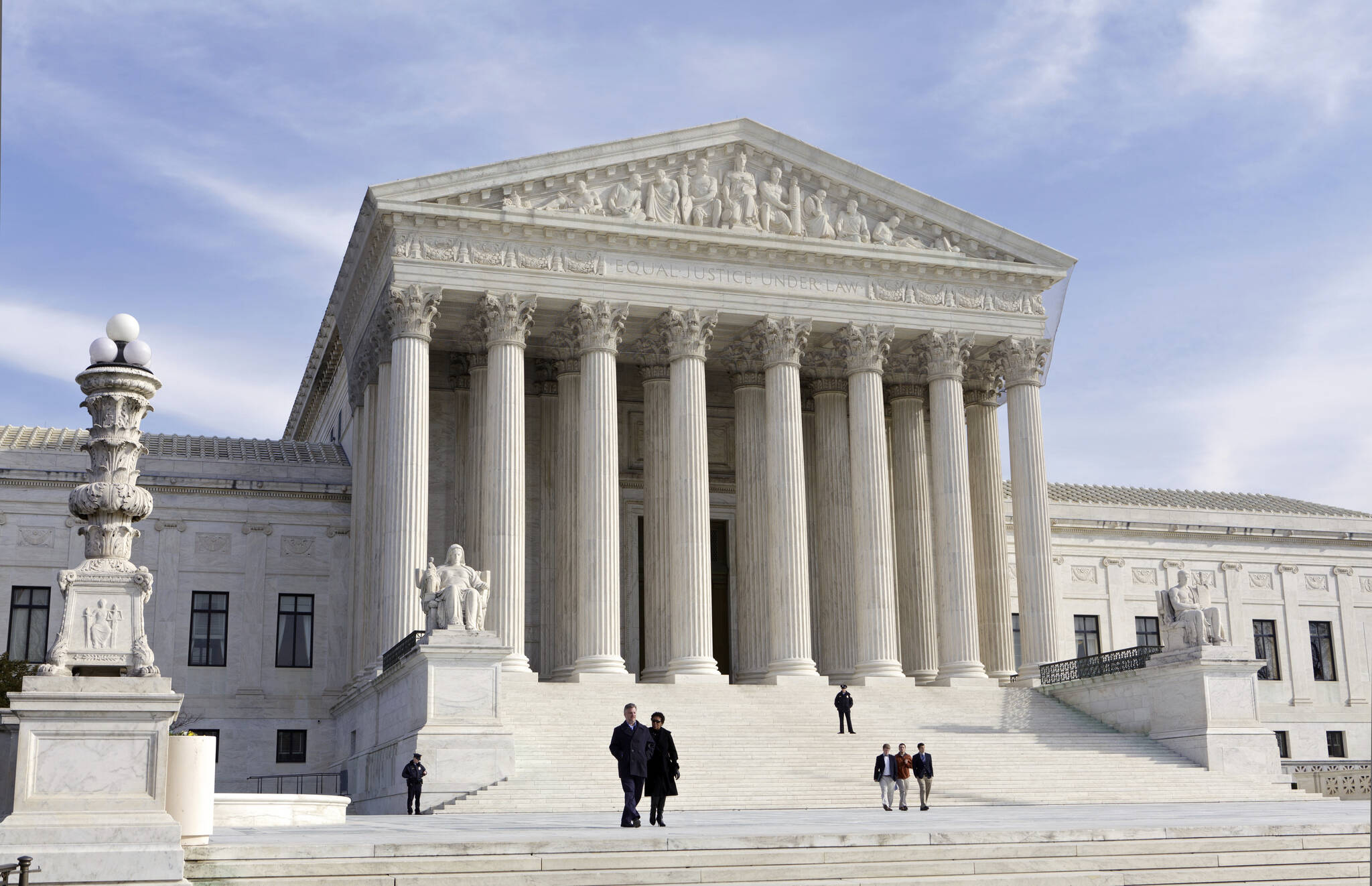By Mark Sherman and Zeke Miller
Associated Press
WASHINGTON — A draft opinion circulated among Supreme Court justices suggests that earlier this year a majority of them had thrown support behind overturning the 1973 case Roe v. Wade that legalized abortion nationwide, according to a report published Monday night in Politico. It’s unclear if the draft represents the court’s final word on the matter.
The Associated Press could not immediately confirm the authenticity of the draft Politico posted, which if verified marks a shocking revelation of the high court’s secretive deliberation process, particularly before a case is formally decided.
A Supreme Court spokeswoman said the court had no comment.
The news outlet published what was labeled as a “1st Draft” of the “Opinion of the Court” in a case challenging Mississippi’s ban on abortion after 15 weeks, a case known as Dobbs v. Jackson Women’s Health Organization.
The Supreme Court has yet to issue a ruling in the case, and opinions — and even justices’ votes — have been known to change during the drafting process. The court is expected to rule on the case before its term is up in late June or early July.
The draft is signed by Justice Samuel Alito, a member of the court’s 6-3 conservative majority, who was appointed by former President George W. Bush.
“Roe was egregiously wrong from the start,” the draft opinion states.
“We hold that Roe and Casey must be overruled,” it adds, referencing the 1992 case Planned Parenthood v. Casey that affirmed Roe’s finding of a constitutional right to abortion services but allowed states to place some constraints on the practice. “It is time to heed the Constitution and return the issue of abortion to the people’s elected representatives.”
The draft opinion in effect states there is no constitutional right to abortion services and would allow individual states to more heavily regulate or outright ban the procedure.
Politico said only that it received “a copy of the draft opinion from a person familiar with the court’s proceedings in the Mississippi case along with other details supporting the authenticity of the document.”
The report came amid a legislative push to restrict abortion in several Republican-led states — Oklahoma being the most recent — even before the court issues its decision. Critics of those measures have said low-income women will disproportionately bear the burden of new restrictions.
The leak jumpstarted the intense political reverberations that the high court’s ultimate decision was expected to have in the midterm election year. Already politicians on both sides of the aisle were seizing on the report to fundraise and energize their supporters on either side of the hot-button issue.
An AP-NORC poll in December found that Democrats increasingly see protecting abortion rights as a high priority for the government.
Other polling shows relatively few Americans want to see Roe overturned. In 2020, AP VoteCast found that 69% of voters in the presidential election said the Supreme Court should leave the Roe v. Wade decision as is; just 29% said the court should overturn the decision. In general, AP-NORC polling finds a majority of the public favors abortion being legal in most or all cases.
Still, when asked about abortion policy generally, Americans have nuanced attitudes on the issue, and many don’t think that abortion should be possible after the first trimester or that women should be able to obtain a legal abortion for any reason.
Alito said the court can’t predict how the public might react and shouldn’t try. “We cannot allow our decisions to be affected by any extraneous influences such as concern about the public’s reaction to our work,” Alito wrote in the draft opinion, according to Politico.
At arguments in December, all six conservative justices signaled that they would uphold the Mississippi law, and five asked questions that suggested that overruling Roe and Casey was a possibility.
Only Chief Justice John Roberts seemed prepared to take the smaller step of upholding the 15-week ban, though that too would be a significant weakening of abortion rights.
Until now, the court has allowed states to regulate but not ban abortion before the point of viability, around 24 weeks.
The court’s three liberal justices seemed likely to be in dissent.
It’s impossible to know what efforts are taking place behind the scenes to influence any justice’s vote. If Roberts is inclined to allow Roe to survive, he need only pick off one other conservative vote to deprive the court of a majority to overrule the abortion landmark.

